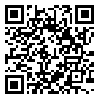BibTeX | RIS | EndNote | Medlars | ProCite | Reference Manager | RefWorks
Send citation to:
URL: http://jssu.ssu.ac.ir/article-1-3557-en.html
Introduction: Leishmaniasis has created enormous global health problems. Side effects, drug resistance and the lack of effective vaccines had led to the new effective compounds effective of plants. The aim of this study was to introduce a traditional medicinal plant called Black alfalfa (Medicago Lupulina) that can be used as a valuable resource against cutaneous leishmaniasis.
Methods: In this experimental study, alcoholic extract was prepared by maceration and essential oil by distillation water method. Leishmania major promastigotes were cultured at 25 ± 2° C in N.N.N culturemedium, then in Schneider and next were cultured in RPMI- 1640. afterward, using MTT (Methyl Thiazole Tetrazolium), the IC50 (Inhibitory Concentrations 50%) for extracts, essence and Glucantime were determined. The results using Tukey and t-test were analyzed and were presented by software SPSS16. MTT assay were repeated. 3 times for each sample.
Results: IC50 for alfalfa leaf extract and essential oil of black alfalfa and Glucantime against L. major promastigotes was determined after 24, 48 and 72 hours, 240, 130 and 69 micrograms per ml, and 801, 340 and 190 micrograms per ml, also 26, 19 and 11 micrograms per ml , respectively. There was a significant differences between the IC50 plant extract and essential oil and Glucantime after 24, 48 and 72 hours.
Conclusion: Alcoholic extracts and essential oil the plant had significant anti leishmaniasis effects in vitro. In this way, it can be considered as an anti-leishmaniasis among the herbs.
Received: 2016/01/8 | Accepted: 2016/04/9 | Published: 2016/07/19
| Rights and permissions | |
 |
This work is licensed under a Creative Commons Attribution-NonCommercial 4.0 International License. |





